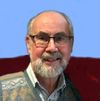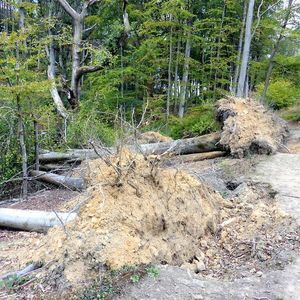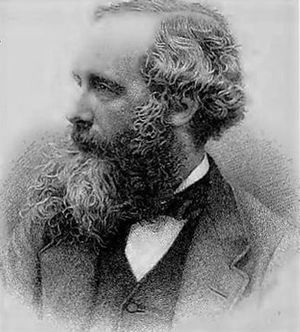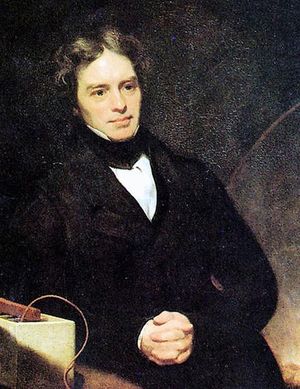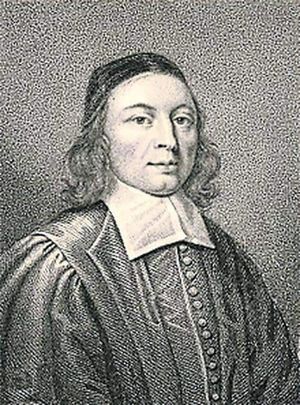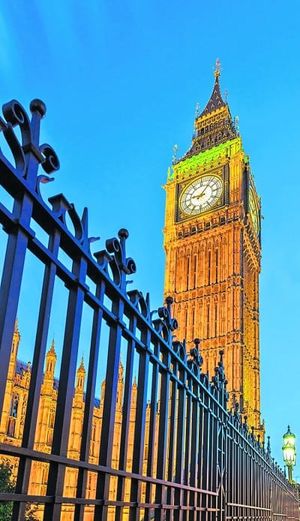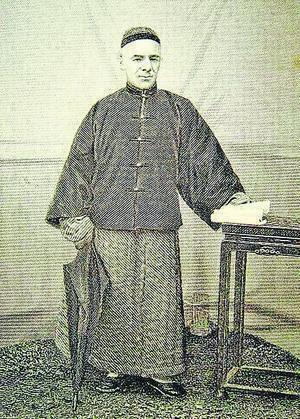This is the first part of a 2 part series.
The second part is here
William Carey — a light for India
William Carey was born on 17 August 1761, at Paulerspury in Northamptonshire, where his father was village schoolmaster and parish clerk. He loved nature and filled his bedroom with insects and collected plants and birds.
At the age of 12, William began to learn Latin from Thomas Jones, an educated weaver, so he could understand the botanical names. It was to be the first of many acquired languages.
In 1775, Carey was apprenticed to Clarke Nichols, a shoemaker at Piddington. His fellow apprentice, John Warr from Potterspury, was three years older and a dissenter.
Dissenter
They had vigorous discussions, each strongly defending their denominational views, but Carey soon saw the merits of nonconformity and in 1779 joined the Congregationalists in the next village of Hackleton. He was converted under Mr Chater from Olney, who stressed Hebrews 13:13: ‘Let us go forth therefore unto him without the camp, bearing his reproach’.
After noticing some Greek text in Nichols’ New Testament commentary, Carey again approached Jones, this time for tuition in Greek.
After Nichols’ death, Carey moved to neighbouring Hackleton to work for Thomas Old, where he met the young and uncouth clergyman Thomas Scott from Ravenstone, who had led Old’s aged aunt to Christ.
At Hackleton Carey formulated broadly Calvinistic doctrinal views. He attempted to defend these at a meeting led by the revered mystic William Law, who equated intuition with Scripture.
Carey returned somewhat confounded, but, aided by Scott, delved ever deeper into the Scriptures and found benefit in Robert Hall’s Help to Zion’s travellers (1781).
In 1781, Carey joined the newly constituted Hackleton dissenting church, which accommodated differing views on baptism — something he later applied in Calcutta. This same year, aged 19, he married Dorothy Plackett, Old’s sister-in law.
Within two years, a fever left Carey virtually bald, but, more tragically, killed their first child Ann. Thomas Old also died and Carey was left to care for Mrs Old and her four children.
Baptist
In 1783, a sermon by John Horsey and further study of the New Testament convinced him that baptism was an ordinance appointed for conscious faith and consecration, and was subsequently baptised at 6.00am in the River Nene at Northampton, by John Ryland (Jnr).
Carey was now preaching at the Baptist chapel at Earls Barton — walking the 12 miles every fortnight — and monthly at Pury End. Baptist ordination was refused him in 1785, but allowed the following year, Ryland commenting, ‘I would I had a like deep sense of truth’.
Carey added Hebrew to his languages and moved to become pastor of the Baptist church at nearby Moulton. Here Felix, William and Peter were born.
His stipend of 4s per week, less than a farm labourer earned, meant that he had to augment his income by shoemaking, for Thomas Gotch of Kettering, and also ran a school for a time. Gotch soon told Carey to cease the shoemaking and he would make up the difference from his own purse.
William Carey then moved to become pastor of Harvey Lane Baptist Church, Leicester, and soon had the sorrow of burying their only daughter Lucy. His straitened circumstances necessitated his keeping a school as well as shoemaking.
He drew a world map for the wall and made a leather globe, with continents in different colours. Wearing his leather apron, and with his books beside him, he toiled away in his small one-bedroomed cottage. Somehow he found time to hear such lecturers as Joseph Priestley at Leicester’s Philosophical Institute, and became acquainted with the latest scientific discoveries.
Following publication of Captain Cook’s Voyages in 1788, Carey became intensely concerned for the spiritual welfare of newly discovered peoples, and published his 87-page pamphlet An enquiry into the obligations of Christians to use means for the conversion of the heathens (1792).
Captain Cook had argued that Christian mission would never happen, because it would not serve man’s avarice or ambition, but Carey determined to prove him wrong. He exhorted his local Baptist Association to action, saying,’we must plan and plod as well as pray’ and be as much in earnest as the traders.
Missionary
Carey began his life of mission by helping to lead his two sisters to Christ. His zeal caused some to brand him an Arminian; they would not attend the Association meeting if he was preaching.
But Carey argued that if we accept the promise, ‘Surely I will be with you always, to the very end of the age’, we must also accept the accompanying command, ‘Go and make disciples of all nations’ (Matthew 28:19-20).
John Ryland (Snr) reportedly said to him at an Association meeting, ‘Young man, sit down, sit down. You’re an enthusiast. When God pleases to convert the heathen, He’ll do it without consulting you or me. Besides, there must first be another Pentecostal gift of tongues’. If true, this statement certainly reflected a hyper-Calvinism prevalent among the Baptists.
Carey preached at the Association meeting at Friar Lane, Nottingham, from Isaiah 54: ‘Enlarge the place of thy tent … thy seed shall inherit the Gentiles…’, memorably bidding his hearers, ‘Expect great things from God. Attempt great things for God’. He fashioned these phrases to be the right and left boots in his missionary march for Christ.
The Association were unmoved until Fuller espoused the cause. Then the proposition to form the Particular Baptist Society for the Propagation of the Gospel amongst the Heathen was passed. It was at Kettering on 2 October 1792 that this society was born, later to become the Baptist Missionary Society.
John (Jack) Thomas from Fairford, Gloucestershire, was a lone pioneer missionary doctor in Bengal, who at this time returned home to find an assistant. He read a letter from two Brahmin enquirers to the Association: ‘Have compassion on us, and send us preachers and such as will forward translation’.
Pioneer
This was Carey’s Macedonian call, and his valedictory took place on 20 March 1793, when Andrew Fuller gave an emotional charge. Afterwards, John Ryland (Jnr), John Sutcliff, Andrew Fuller and Samuel Pearce covenanted to stand by Carey in his missionary venture, until their deaths.
Dorothy at first refused to accompany her husband, but relented under pressure from John Thomas providing her sister Catherine came too.
Carey was the first missionary to be sent overseas by an evangelical mission, and his example provided the stimulus for the founding of the London Missionary Society (1795), Church Missionary Society (1799) and British and Foreign Bible Society (1804).
After a tedious 5-month voyage, calling at no ports, they navigated the Hugli river up to Calcutta. The East India Company had chaplains for its English staff, but banned missionary work amongst the Indians. They didn’t want to upset the people they were trading with, and they feared mutinies.
Dorothy and Felix, their eldest boy, were stricken with dysentery, and, as John Thomas had overspent, they ran out of funds and had to borrow a dilapidated shack on a malarial infested marsh.
Carey needed to buy seeds and tools to cultivate an allotment, and the whole episode plunged Dorothy into a mental disorder from which she never recovered.
William again resorted to shoemaking, and in all this adversity could write in his Journal, ‘I rejoice in having undertaken this work; and I shall, even if I lose my life therein’. What was his comfort in such straits? ‘When my soul can drink her fill at God’s Word, I forget all’.
Eventually, a few acres of cleared jungle at Debhatta became available, but there was just one snag — the area was infested with cobras and man-eating tigers (they had devoured 20 men over the previous season).
They also came across a stranger, Charles Short, who worked for a salt company, and he asked them all to share his house. He later married Catherine, but Carey was concerned that, though gracious, Short remained an unbeliever.
‘Tent-maker’
Carey witnessed many disturbing and cruel practices, fuelled by the teaching of the Hindu Brahmins. Men swung from hooks piercing their backs; fakirs impaled themselves on spikes; widows were burned or buried alive with their late husbands (sati); and barren women would vow to the Ganges that they would throw a baby into the river to be drowned or eaten by crocodiles.
Lepers would roll into fiery pits, believing they would be reincarnated into a purer existence. All this spurred Carey on to master the language of the people — Bengali — in order to communicate the gospel to them.
Needing paid employment, he moved to Mudnabati, where he learned the process of making blue cubes of indigo dye from green liquid extracted from the indigo plant.
Sickness again struck, and their 5-year-old son Peter died; Dorothy had dysentery and became more disordered. Carey commented (3 February 1795), ‘This is indeed the valley of the shadow of death to me’. John Thomas counselled, ‘Think of Jesus. Only a little while, and all will be over’.
Nigel Faithfull
To be concluded

